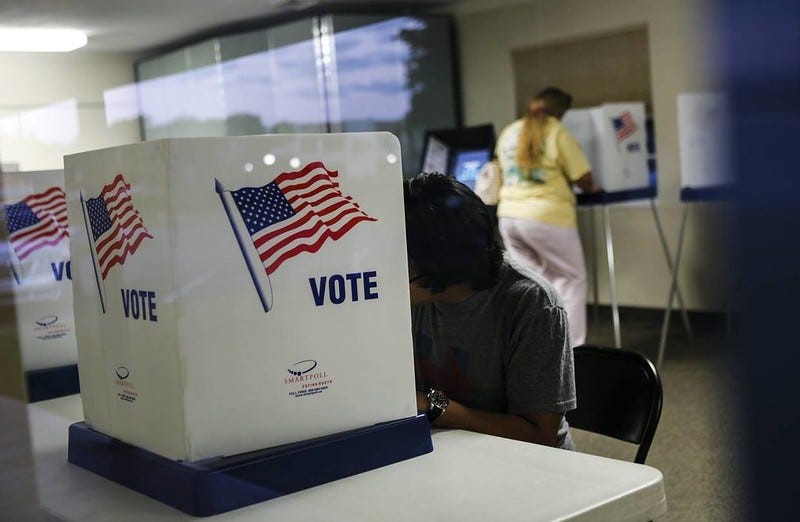I love it when democracy works well and an election goes smoothly.
But enough about Brazil’s national election.
This year’s U.S. midterm election went fairly well, despite the usual rumors of votes being dumped, voting machines being manipulated, and dead people voting for the wrong party.
The way I see it, there were more winners than losers. Almost everyone who runs for office begins the race as a winner. It takes courage to run for office. You have to put yourself out there and become a punching bag for the other party. You have to face the possibility — in many cases, probability — that you will lose the election, perhaps in a landslide. But that itself does not make you a loser. The way I see it, you are only a loser if you fail to get more than one vote. You are only a loser if the sole person who votes for you is the person staring back at you in the mirror. You are only a loser if you can’t get your spouse or children to vote for you, if your siblings make all sorts of excuses, if your mother says the lines at the polls are too long, and you’re going to lose anyway, so why bother?
The election results themselves do not usually make anyone a loser. It’s not whether you come first or last that determines if you’re a winner or loser — it’s how you ran the race. Did you engage in thoughtful debate or make fun of your opponent’s weight? Did you try occasionally to use your brain or merely say something profane? Did you exhibit dignity and grace or spread ideas from a Twitter-verified nutcase?
The way I see it, there were many winners on both sides of the aisle. Winners galore. Winners wearing red, winners wearing blue, winners out the wazoo.
But alas, there were some losers too. Losers who may one day become winners, not by winning elections but by exhibiting the characteristics of winners. What are these characteristics? Well, here are just three:
-
When winners lose an election, they concede gracefully. They congratulate the person who got the most votes. They do not become “election deniers.” An election denier is a candidate who, upon losing an election, denies that an election ever took place. “There was an election?” they ask. “It may have looked like an election, but I wouldn’t call it an election.” Election deniers are different from results deniers. Results deniers are the type of people who look at the numbers on a scale in November and say, “This can’t be true. I didn’t gain 10 pounds just eating turkey and mashed potatoes. Someone rigged the scale!”
-
Winners have principles and one of those principles is to tell the truth. They do not pledge to increase employment and then do so by telling so many lies that media organizations are forced to hire more fact-checkers. They don’t make promises that they don’t intend to keep. And they don’t make up stories about crowd sizes at their rallies — or the sizes of various body parts.
-
Winners don’t try to belittle their opponents based on race, ethnicity, gender identity, sexual orientation, religion, disability, economic status, or lack of hair. They focus on their plans to improve the lives of everyday citizens, not their plans to feel superior to everyone else.
You can be a winner without winning an election. And you can be a loser without losing an election. At least that’s the way I see it.












